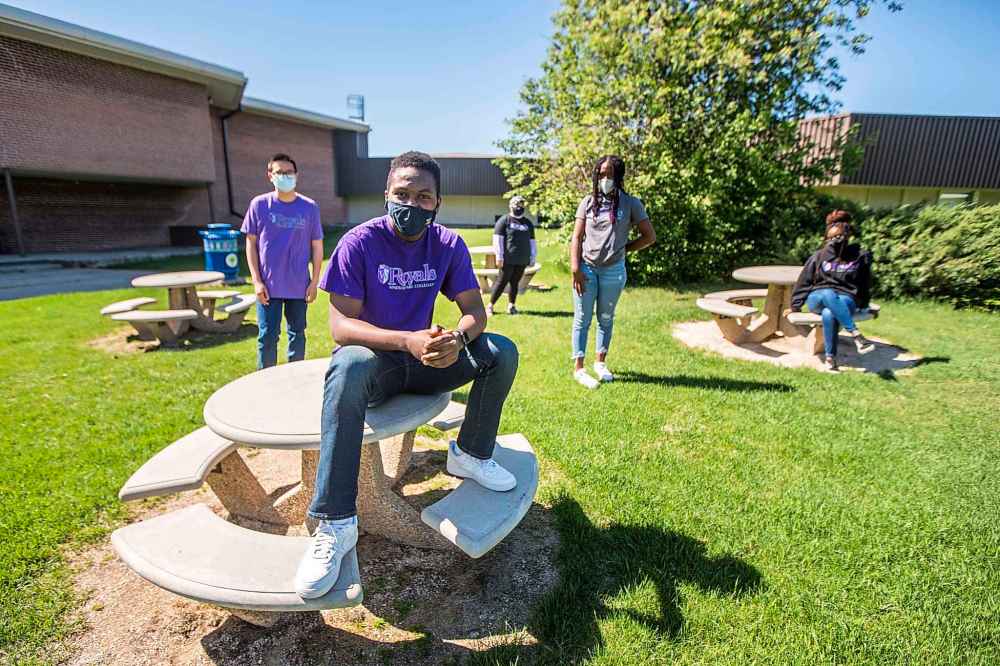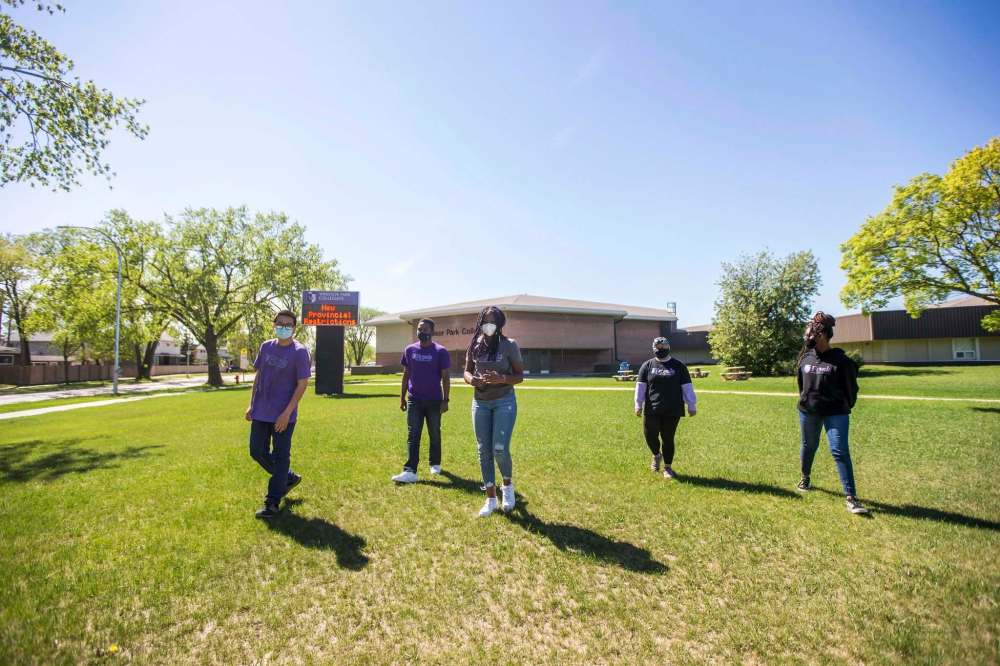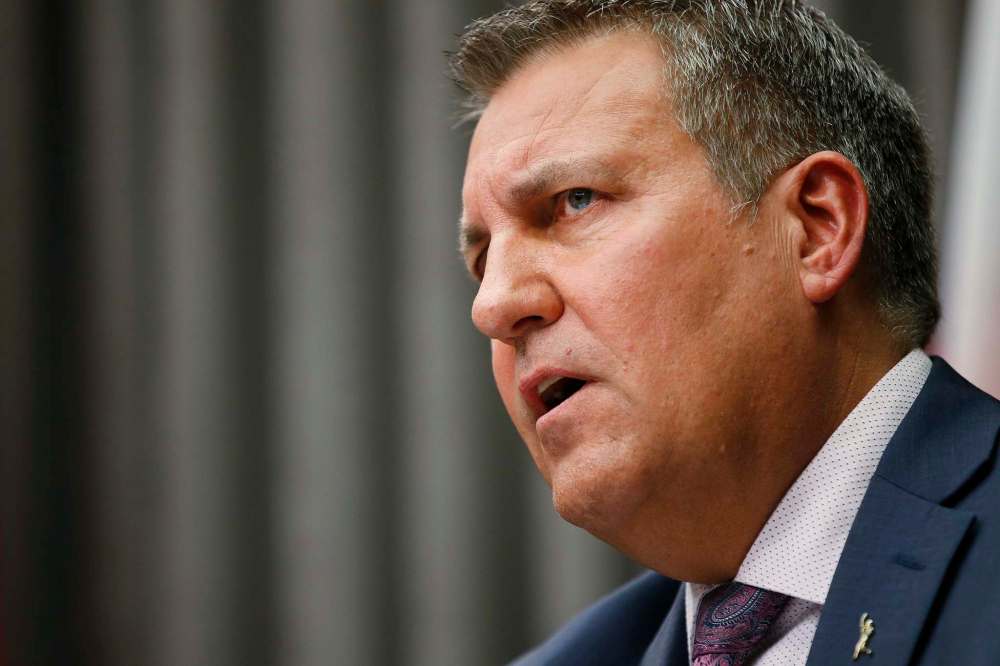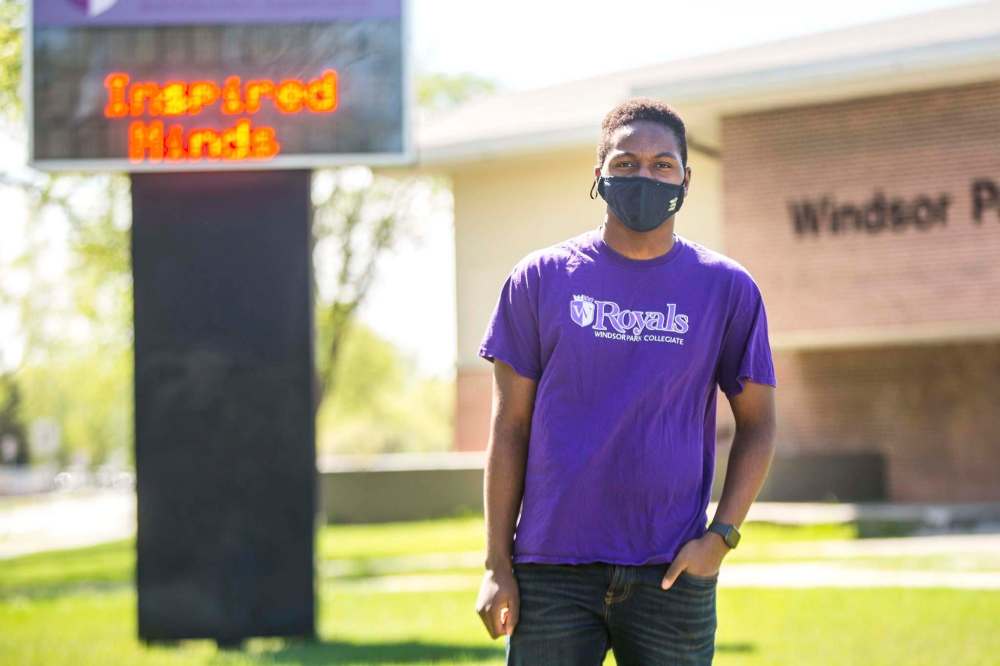Reform bill offers teachable moment
Not appropriate to discuss government policy in classrooms, says education minister
Advertisement
Read this article for free:
or
Already have an account? Log in here »
To continue reading, please subscribe:
Monthly Digital Subscription
$1 per week for 24 weeks*
- Enjoy unlimited reading on winnipegfreepress.com
- Read the E-Edition, our digital replica newspaper
- Access News Break, our award-winning app
- Play interactive puzzles
*Billed as $4 plus GST every four weeks. Offer only available to new and qualified returning subscribers. Cancel any time.
Read unlimited articles for free today:
or
Already have an account? Log in here »
Hey there, time traveller!
This article was published 27/05/2021 (1377 days ago), so information in it may no longer be current.
The grand reveal of the Tory government’s sweeping education reform bill could not have been timelier for teachers at Windsor Park Collegiate, who devised a Grade 9 lesson plan on how legislation becomes law earlier this semester.
Ashley Meyer, Angela Bunkowsky and Billie Cross have built an entire unit — featuring guest speakers, critical analysis of news articles and opinion pieces, and a persuasive essay assignment — around Bill 64 (Education Modernization Act).
“Authentic learning is always the best learning,” Meyer said. “Having (a subject) that kids care about and that will directly affect them or affect people in our community, in our province, that’s where you’re going to get the most engagement from students.”

In mid-March, the Pallister government released the K-12 education review, the Better Education Starts Today strategy, and Bill 64. The opposition has delayed second reading of the controversial bill, which aims to replace English language school boards with a centralized authority made up of government appointees.
The province claims the overhaul will streamline administrative costs to redirect up to $40 million to classrooms, but critics have no shortage of concerns; the erosion of local voice, owing to the elimination of trustees, is chief among them.
In the midst of teaching curriculum on democracy, Windsor Park educators saw an opportunity to have their 120 students research and think critically to form their own opinions on the future of public education.
“It was like eureka — it’s meant to be,” Bunkowsky said.

Students have studied a summary of the draft legislation and prepared presentations on pillars of the related strategy. Now, they are writing essays either in support or opposition to the documents, drawing on takeaways from guest speakers and analyses of pro- and con- articles on the reforms.
NDP Leader Wab Kinew, Liberal Leader Dougald Lamont, NDP education critic Nello Altomare, teacher Rick Haley, and Free Press columnist Niigaan Sinclair all visited the classes virtually to discuss the bill and answer students’ questions.
The premier, education minister, deputy education minister and Progressive Conservative MLA who represents the constituency the high school is in, declined requests to participate.
“We don’t think — I think many parents would agree — that the classroom is an appropriate place to discuss government policy and specific proposed legislation.”–Education Minister Cliff Cullen
“We don’t think — I think many parents would agree — that the classroom is an appropriate place to discuss government policy and specific proposed legislation,” Education Minister Cliff Cullen told the Free Press. “We’re not going to engage in partisan politics in the classroom.”

Citing Lamont’s presentation, Grade 9 student Jean-Pierre Ngegba said hosting a referendum on the bill makes the most sense to him.
“It’s not for the bill, it’s not against the bill — it’s having people’s voices heard. That’s the one thing this bill is missing. It’s for saving money. People have savings accounts for saving money, we don’t need an education bill,” said Ngegba, 15.
Ngegba, who said some of his peers are in favour of the bill, was among the group who shared concerns about it during a virtual event on Bill 64 that was put on by Louis Riel School Division this week.
His critiques include that there are few concrete details on how education will be improved through the new governance structure, the bill fails to address concerns about child poverty, and only one new mega-division will encompass all of Winnipeg.

Other students raised questions during the event about the province considering keeping remote learning options in a post-pandemic world, how underrepresented communities will have a voice in the new system, and the fact Bill 64 only mentions “mental health” once.
“We know we’ve done our job as teachers when our kids know their voice makes a difference,” said Cross.
Cullen said Wednesday there will be plenty of opportunities for the public to provide input on the future of K-12 education, including through a new student advisory council.
maggie.macintosh@freepress.mb.ca
Twitter: @macintoshmaggie

Maggie Macintosh
Reporter
Maggie Macintosh reports on education for the Winnipeg Free Press. Funding for the Free Press education reporter comes from the Government of Canada through the Local Journalism Initiative.
Our newsroom depends on a growing audience of readers to power our journalism. If you are not a paid reader, please consider becoming a subscriber.
Our newsroom depends on its audience of readers to power our journalism. Thank you for your support.
History
Updated on Thursday, May 27, 2021 8:49 AM CDT: Adds photos



